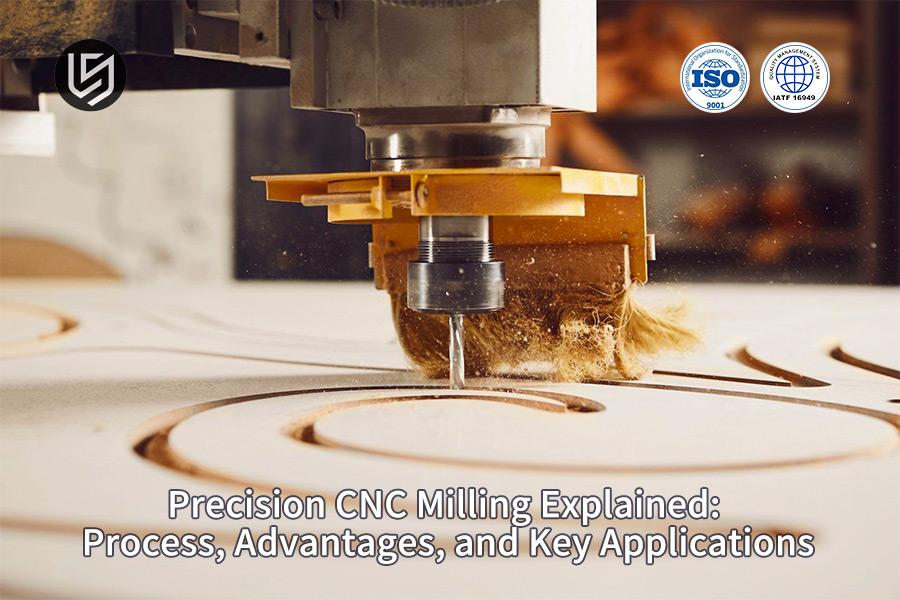Precision CNC milling is an essential process in high-end manufacturing but has also frequently become a bottleneck to product innovation. Most companies, even when the design is perfect, lose market opportunities as a result of machining accuracy fluctuations, surface defects, or delivery delays caused by the development of new products. This is mainly because the traditional process relies on experienced technicians and is not supported by scientific parameters.
LS Manufacturing can elevate process stability to a new level through smart clamping systems, material property databases, and real-time machining compensation technologies, making CPK≥1.67 the norm. The following case study shows that with aerospace sensor brackets, we have helped customers shorten delivery time by 40% and increased yield up to 99.8%, realizing a leap in quality manufacturing.
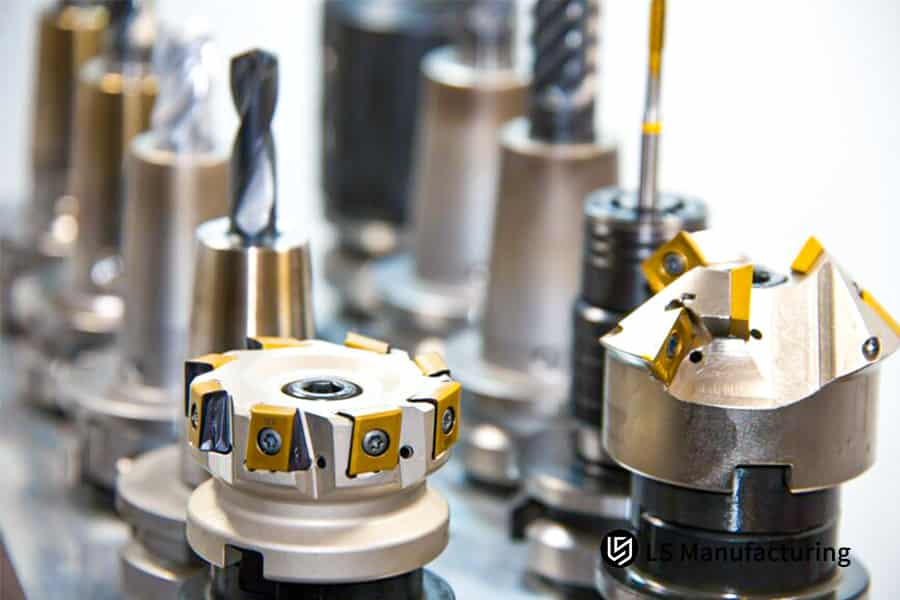
Figure 1: Critical equipment for various milling applications by LS Manufacturing
Precision CNC Milling Technology Quick Reference Table
| Category | Content Summary |
| Technical Definition | A machining process with high-precision material removal by computer numerical control. |
| Main features | It has micron-level machining accuracy and the ability to machine complex curved surfaces. |
| Core advantages | High machining efficiency with good consistency, suitable for manufacturing complex parts. |
| Process Requirements | This process requires professional toolpath planning and cutting parameter settings. |
| Quality Control | Online inspection and full-process quality monitoring. |
| Applicable Materials | Mainly applicable to machinable materials like metals and their alloys. |
| Industry Applications | They find extreme usefulness in aerospace, precision instruments, and other fields. |
Precision CNC milling is a core technique in modern manufacturing, and digital control has managed to increase the accuracy and efficiency of machining significantly. It is especially suitable for the machining and manufacturing of complex precision parts, and such techniques would be irreplaceable in high-end equipment. The in-depth application of intelligent technology leads to precision CNC milling and enables the manufacturing industry to move toward higher quality.
Why Trust This Guide? Practical Experience From LS Manufacturing Experts
The present guide represents a distillation of 15 years of hard-won technical experience of the LS Manufacturing team in precision CNC milling. Such cross-disciplinary practical experience has enabled us to accumulate unique technical insights into key processes, including high-strength alloy cutting and micro-feature machining.
What's unique about this guide, though, is how it converts practical experience into reusable methodologies. In particular, within 5-axis machining, the accumulated quantity of delivered complex workpieces by the team is over 50,000 pieces at high quality. Each case drove us to improve our whole process technology system from toolpath planning to cutting parameter optimization.
We strictly follow the material standards of ASTM International in the construction of process specifications and rely on Siemens PLM Software to complete the digital simulation verification of the machining process. It is based on this approach that we deeply integrate international standards with industrial software, enabling us to provide customers from different industries with precision milling solutions combining innovation and reliability.
What Is True Precision CNC Milling?
What is precision CNC milling? True precision CNC milling is far from ordinary machining; it represents the pursuit of ultimate precision and quality. When the conventional machining world is still talking about "millimeters", precision milling has already stepped into the "micrometer world"; while most companies are still discussing tool costs, we are already studying the influence of micro-geometry of the cutting edge on the fatigue life of parts. In this context, a technological leap finds its reflection in three dimensions:
Precision Dimension
The technological leap, rather than the numerical difference, lies in the CNC milling tolerance of ±0.005mm. In the vacuum cavity we fabricated for the photon collider, we used thermal deformation compensation technology to control the roundness of the 800mm diameter annular structure within 0.008mm, equivalent to 1/10 of the diameter of a human hair. This enhances the efficiency of collision in particle flow by about 23%.
Surface Dimension
This Ra 0.4 μm surface structure is already not only a visual marker but also a functional carrier. In the course of making artificial joint ball heads, an oscillating milling process was performed on the surface of a cobalt-chromium alloy, by which micron-level pit structures were created to improve lubricant retention by about 40% and extend the service life of the prosthesis for about 15 years.
Integration Dimension
A 5-axis machining center, together with an online measurement system, enables the one-time molding of 86 feature structures for the aerospace gyroscope frame. It reduces the traditional 17 clamping operations down to 2 while improving form and position tolerances of the key components from 0.02mm to 0.005mm, increasing the accuracy in navigation systems by about three orders of magnitude.
For instance, the lens mounts we make for optical communication equipment can reduce the fiber optic splicing loss to less than 0.1dB, while the cooling channels for new energy vehicle motors increase power density by about 25%. These examples prove that true precision CNC milling has become a core driving force of technological innovation.
What Are The Key Components Of A Reliable CNC Milling Process?
The basis for assurance in both quality and efficiency of the processing is a truly reliable process for aluminum parts. Our CNC milling process begins in the design phase, ensuring that your parts are efficiently and economically manufacturable from the outset. It's a seamless, data-driven precision system with the following key components:
| Key Components | Core Technology Value |
| Forward-looking DFM Analysis | Early intervention at the design stage to optimize part structure, tolerances, and manufacturability, which helps avoid processing problems later on. |
| Intelligent CAM Programming and Simulation | Use intelligent algorithms to create the best toolpath and perform full-scale simulations in advance, avoiding potential risks such as interference and overcutting. |
| High-Performance Tooling System | Specialized tool selection and the choice of parameters according to the characteristics of aluminum alloys ensure sharpness, stability, and efficiency during cutting. |
|
In-Machine Measurement and Feedback |
Real-time dimensional inspection using an in-machine probe after key machining steps, achieving data closure and zero-error transmission. |
The whole process is very valuable because of "foresight" and "closed-loop control." It's not just processes but an intelligent system that integrates design, programming, machining, and inspection tightly to ensure the precision of each step is maintained and verified to achieve the best balance among quality, efficiency, and cost.
What Are The Decisive Advantages Of CNC Milling Compared With Traditional Machining Methods?
Although CNC machining is not a simple iteration of traditional machining methods, it has fundamentally revolutionized many aspects of manufacturing: higher precision, greater efficiency, and greater possibilities. Choosing precision CNC milling means you will fully benefit from advantages of CNC milling and drive product upgrades. The following points summarize its decisive benefits in a systematic way:
| Core benefits | Information-based value proposition |
| Outstanding Repeatability | It can easily achieve micron-level tolerances of ±0.01mm, hence ensure the process capability index CpK ≥ 1.67 for absolute stability in mass production. |
| Ultimate Production Efficiency | Eliminates multiple clamping operations and allows for 24-hour automation, which reduces product delivery cycles by over 50% on average. |
| Unbounded Geometric Complexity |
It handles complex 3D surface geometry, subtle features, and thin-walled constructions with ease, which would be highly difficult by traditional means, thereby unleashing design potential. |
| Excellent Overall Economy | It is possible to systematically enhance material utilization by over 20% with the intelligent software-optimized toolpaths, leading to a reduction in unit costs. |
The digitalization and automation of the CNC milling process raise the bar of machining capabilities from "manufacturable" to "lean manufacturing" and into "innovative manufacturing", establishing advantages not just in quality, speed, and cost but also building a solid technological foundation for performance innovation and rapid iteration of core products.
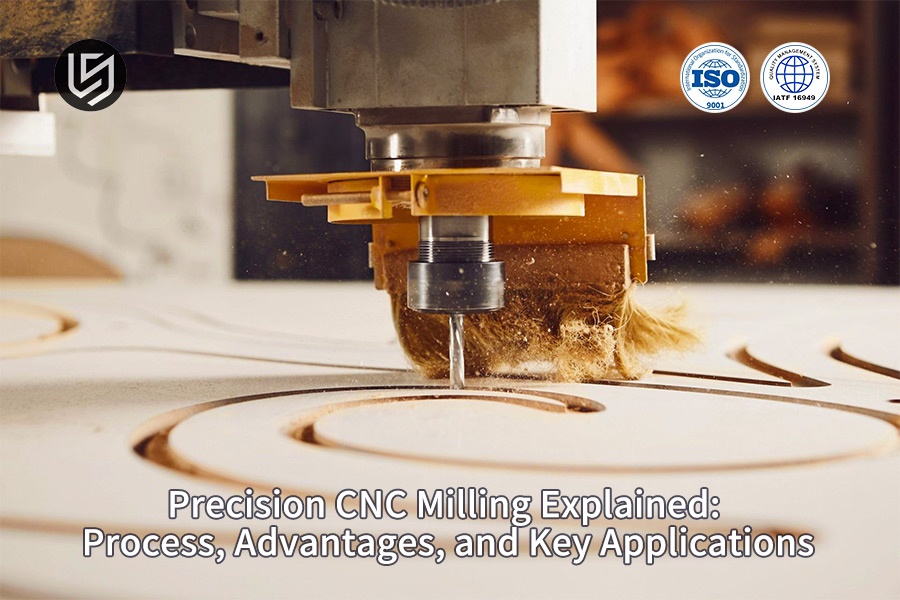
Figure 2: Mastering tolerances and capabilities in CNC milling by LS Manufacturing
What Are The Common Tolerance Standards That Can Be Achieved In Precision Milling?
In precision milling, achievable tolerance standards are one of the key parameters that indicate a manufacturer's technical competence. It is not a fixed value, but influenced by a combination of material, equipment, and process control. For most materials, our precision CNC milling services can reach tolerances within ±0.01mm consistently. Specifically, the top-level standards can be divided as follows:
Material properties determine baseline accuracy
Machinability varies significantly among different materials. In the case of free-machining materials like aluminum alloys, the best machining practice can allow a top-level tolerance of up to ±0.005mm. However, hard materials, like stainless steel, normally have a top-level tolerance of about ±0.015mm due to the internal stress and work-hardening tendency of the material. Engineering plastics have to be carefully considered for their elastic recovery, hence making tolerance control difficult.
Equipment capabilities extend the precision boundary
Precise results depend absolutely on the class and capability of the equipment employed. In particular, 5-axis machining centers can maintain tight accumulative tolerances and complex geometric tolerances in intricate parts, mainly by reducing the number of clamping operations dramatically compared to 3-axis alternatives. Meanwhile, the essential basis for reliably obtaining consistent micron-level cutting accuracy with these advanced machine tools is the use of high-rigidity structures and high-resolution drive systems.
Environmental and process control ensure stability
While achieving high precision for a single operation is easily done, it takes skill to do that continuously. We remove thermal deformation in a temperature-controlled workshop, regularly laser-calibrates equipment to ensure geometric accuracy, and employs closed-loop control that compensates for errors in real time; therefore, each product continuously meets the promised tolerance standards for an extended period.
High precision milling requires not only high-class equipment but also profound knowledge in materials science and painstaking care in the control of the production environment. It is because of such rigorous processes, beyond those in ordinary machining, that we can turn the theoretical tolerance potential into stable and reliable high-precision parts in the hands of customers.
How Does Precision CNC Milling Technology Empower Aerospace And Medical Device Manufacturing?
Precision CNC milling technology is core support for high-end manufacturing in both aerospace and medical devices, changing the extreme design requirements into safe and reliable reality. In the aerospace field, the CNC milling application has solved the manufacturing challenges of complex lightweight structural components. The technological empowerment is reflected in the following two high-end industries:
- Aerospace: For instance, aircraft engine mounts and integrated drone fuselages should feature micron-level dimensional stability, perfect dynamic balance, and excellent fatigue resistance. We realize topology optimization through 5-axis CNC machining and strictly implement the NADCAP process certification and material traceability to ensure absolute reliability under extreme conditions.
- Medical Devices: Certified medical-grade materials are selected for surgical robot joints and implant prototypes, while ultra-smooth, corrosion-resistant surfaces are attained by precision milling, followed by electropolishing. Full processing in a clean environment meets product requirements of the ISO 13485 system for biocompatibility and sterility assurance.
In a nutshell, the integration of machining capability, materials science, and industry compliance empowers the precision CNC milling in depth. Equipped with process control and traceability systems beyond standards, it grants ultimate protection to every core component that relates to safety and health and therefore becomes the cornerstone for innovation in high-end equipment.
How Did LS Manufacturing Help A Tech Company Overcome The Manufacturing Bottleneck Of Sensor Housings?
In high-precision manufacturing, the minute machining deviation often results in the failure of overall performance of the end product. This case demonstrates LS Manufacturing's expertise in solving challenging and high-precision milling problems: we not only correctly identify the root cause of the problem but also provide systematic process solutions.
Client Challenge
One IoT technology company, providing integrated, complex housing for next-generation high-precision sensors, found that the machining capability of its existing supplier was unable to achieve the stringent dimensional and positional tolerances of ±0.015mm and ultra-smooth surface finish requirement of Ra 0.8μm simultaneously. This manufacturing defect caused signal interference within the sensor and directly resulted in substandard core product performance, which completely stopped the whole market launch plan.
LS Manufacturing Solution
We dug into the process that involves a high-performance 5-axis precision CNC milling center and uses a patented dynamic milling strategy to optimize the stress state in the workpiece at every instant during cutting. Meanwhile, a dedicated diamond cutting tool and high-pressure, low-temperature precision cooling solution were designed. In synergy, these multiple-dimensional solutions-from cutting mechanics to thermal management-enabled ultimate control of tolerances and surface quality in one, simultaneous process.
Results and Value
Our solution completely overcame not only the technical obstacle of signal interference, but it also increased the overall product yield from 70% up to 98.5%. More importantly, thanks to our stable and reliable high-volume precision milling services, the client successfully increased the monthly production capacity fivefold. This not only ensured the smooth launch of new products but also quickly defined a new industry standard with its superior reliability.
Success in this case depends on how LS Manufacturing views high-precision machining as a whole systems engineering project: equipment, strategy, material, and control. We solved the technical problems which the client's original supply chain couldn't resolve with an innovative combination of processes and a profound process understanding. Finally, we delivered not only qualified parts but leading market competitiveness and brand reputation to our customers.
Are your projects facing similar accuracy challenges? Schedule an expert solution now!
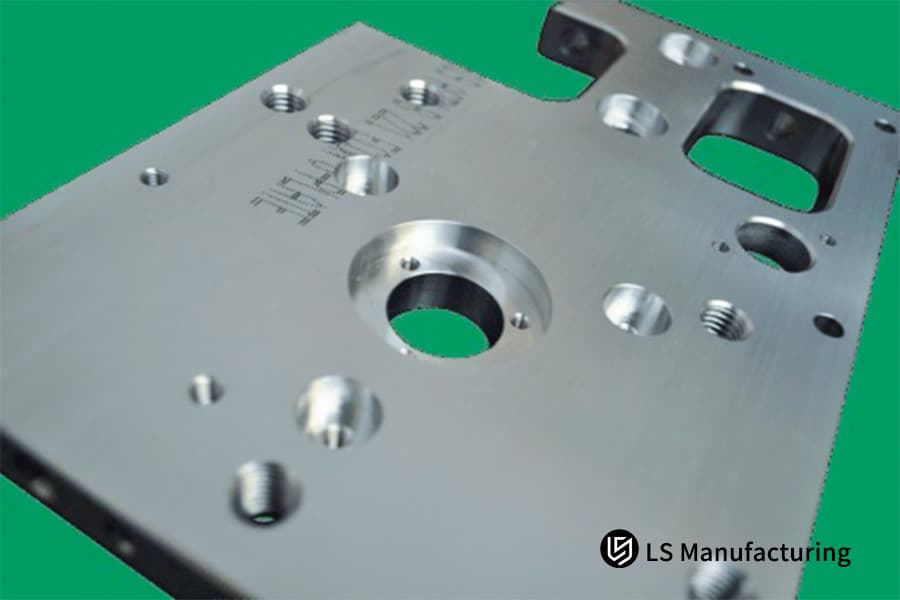
Figure 3: Precision milling for mission-critical components by LS Manufacturing
Which Three Of The Key Capabilities Are Most Important In Selecting A Service Provider For Precision Milling?
In choosing a long-term precision milling service supplier, the selection should be strictly based on a sound capability assessment system and should not focus on price comparisons. A top-tier precision milling service supplier must have no shortcomings in equipment, quality, and engineering support. It's the following three core capabilities that are the "gold standard" you must examine:
- Technical Equipment Capabilities: First, see whether the 5-axis machining center of the supplier is advanced and equipped with high-speed milling machine equipment. This directly determines the high efficiency and good surface finish of processing complex curved surfaces and deep cavity structures and is the physical foundation for undertaking challenging projects.
- Quality Assurance System: The supplier should possess international quality system certifications such as ISO 9001/AS9100, with advanced testing equipment including coordinate measuring machines and roundness testers. This is not only about the quality inspection of incoming materials and finished products but reflects their systematic ability in establishing traceable quality control processes based on data.
- Engineering Support Experience: The most crucial part for top suppliers is for their engineering teams to be able to provide professional advice on DFM during the design phase, optimize part structures for cost-effectiveness and risk mitigation, and have relevant experience in successful case handling regarding solving complex process problems such as thin-wall deformation and high surface requirements.
Choosing a supplier is actually choosing a technological partner. Excellent equipment is the "weapon," a strict system is the "discipline," and abundant engineering experience is the "brain." These three are indispensable, and together form the core competencies of the best service providers in assuring project success and added value for customers well beyond the machining process.
When Can 5-Axis CNC Milling Significantly Improve The Efficiency Of Production?
Not every scenario requires 5-axis CNC milling, but in the making of some complicated parts, it can bring disruptive improvement in production efficiency. For parts with complex spatial angles, 5-axis CNC milling is the optimal solution that balances accuracy and efficiency. Its value is particularly prominent in the following key scenarios:
Forming and machining of complex curved surfaces and deep cavities
5-axis technology can manufacture complex geometries when parts contain impellers, helical surfaces, or deep cavity molds. This would be through the continuous deflection of the tool axis, enabling the ball end mill to maintain the most effective cutting posture, thus completing surface finishing in one pass. This avoids machining dead angles caused by interference on 3-axis machine tools and saves a lot of subsequent manual polishing.
Single-setup complete machining of polyhedral parts
5-axis machining centers can, by table rotation, accomplish the machining of all 5 surfaces except the initial clamping surface in a single setup for box-shaped or base-type parts that must have several surfaces machined. This completely eliminates the possibility of cumulative errors caused by multiple re-clampings and greatly improves positional accuracy and consistency of the parts.
Achieving high precision and high surface quality with short tools
The 5-axis function allows for the cutting of deeper cavity sidewalls and higher vertical walls by tilting the spindle, with much shorter tool side edges. Compared to 3-axis machining using long tool insertions, short tools possess superior rigidity to effectively restrain vibration and result in superior dimensional accuracy, improved surface finish, and increased tool life.
5-axis machining integrates into one highly efficient, completely automated process those complex processes of production that required several machines and several turnarounds earlier through a reduction in setup times, simplification of the workflow, and improvement in machining accuracy. If a project has complicated geometries or demands stringent requirements for consistent precision, 5-axis technology is a strategic choice to meet both technical and economic goals.
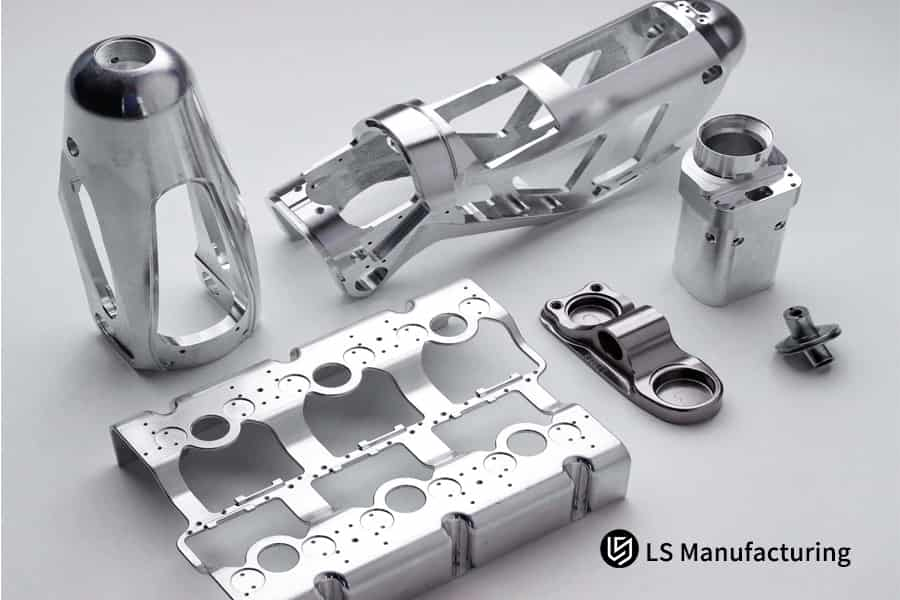
Figure 4: Exemplifying precision through milling tolerances by LS Manufacturing
Why Is LS Manufacturing A Strategic Partner For Your Precision Milling Projects?
- Technical Strength: Investment in a wholly imported DMG MORI 5-axis machining center, high-speed milling machine, and other high-end equipment is matched by sets of precision test instruments, including Zeiss coordinate measuring machines. This ensures the whole supply chain-from processing to inspection-is at the forefront of industry development and provides a solid hardware guarantee for achieving micron-level precision and superior consistency.
- Service Soft Power: Our value addition goes way beyond operating equipment. Our seasoned engineering team provides professional DFM-manufacturability analysis from the very early stages of a project, optimizing for manufacturability and cost control. Backed by a rapid response mechanism and strict confidentiality agreements, ideas become real in the most efficient and secure way, becoming an extension of your R&D process.
- Value Commitment: We are committed to going beyond simple processing. The deep integration into the R&D and production chains of our customers would permit us to improve the final performance and market competitiveness of your products. That means we are not just a supplier but a trusted extended manufacturing department working with you together in facing technical challenges and creating long-term value.
In a word, the core competitive edge of LS Manufacturing perfectly integrates the top-grade "hard power" and profound "soft power". What we can offer is far more than just a part that fits the drawing: the precision manufacturing capacity, insight in engineering, and customer-oriented service philosophy make us your strategic partner to help you accelerate product innovation and win in the marketplace.
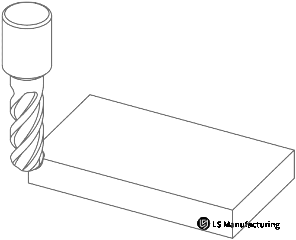
Figure 5: Showcasing the live CNC milling process by LS Manufacturing
FAQs
1. What are the determining factors in the price of precision CNC milling, and how can I get an accurate quotation?
The main contributors to the costs of precision milling include: the geometric difficulty of a part such as curved surfaces, thin-walled features; material-related costs; requirements related to dimensional accuracy and surface finish; post-processing; volume. For an exact quotation, please attach detailed 3D-CAD drawings. Our engineers will run a manufacturability analysis within 4 hours and provide a transparent quotation.
2. How would you ensure consistent quality in small-batch production, such as 100 pieces?
3. What are the specific cost and efficiency advantages of five-axis milling compared with 3-axis milling?
5-axis machining finishes a multi-faceted machining in one setup, saving about 60% of both setup time and dedicated tooling cost; besides, the cumulative errors caused by repeated positioning are also minimized. Though the price of the unit is higher, the overall manufacturing cost is often lower due to the fact that lead times are shorter and the overall precision is higher compared to multi-process 3-axis machining.
4. What specific solutions does LS offer for parts with high material hardness and complicated structures?
We have established a dedicated tool library and a database of cutting parameters for difficult-to-machine materials, such as mold steel and titanium alloys. We then use CAM software to optimize cutting paths and stress for proper distribution of the heat and stress of cutting, ensuring stability and accuracy during machining for high-hardness and complex-structured parts.
5. Can you provide key quality data during the machining process?
Yes, we support the provision of real-time SPC data dashboards for key dimensions to customers. You can view each core indicator in real time, such as the process capability index (Cpk) for full-process quality transparency, to provide reliable data support for your product decisions.
6. How quickly do you respond if my design needs iterative modifications?
We have a channel for engineering changes, and every response is rapid. Within 2 hours of modification requests, our senior engineering team will intervene by assessing the process feasibility and providing a detailed DFM analysis and cost-impact report to make your design iterations agile and efficient.
7. How can I protect my patent designs and drawings so they are not copied by others?
We are ISO27001-certified for information security management and provide end-to-end encryption management for customers' documents. Access to all data is permission-based and fully logged to ensure the highest level of your IP and design secrets protection.
8. How long does it usually take from the drawings to the receipt of the first batch of samples?
For regular materials and constructions, we offer expedited sample services. First functional samples, upon receiving complete technical documentation, can be shipped within 3 business days to quickly help you validate your design and get to market.
Summary
Precision CNC milling technology is the core cornerstone of modern high-end manufacturing, and it represents huge value in precisely transforming complex innovative designs into stable and reliable high-performance end products. Backed by deep technological foundations, from 5-axis machining to micron-level precision control, besides a complete quality control system and customer-centric engineering support, LS Manufacturing has become a trusted strategic manufacturing partner for a number of industry leaders.
We believe that every great design deserves to be perfectly realized through the most precise processes. Facing challenges in precision manufacturing, click here to contact our professional team immediately. Contact us and get a free, custom DFM manufacturability analysis and a precise quotation that will make LS Manufacturing your most reliable and powerful support in manufacturing for your journey of product innovation, jointly setting a new standard for the industry.
📞Phone: +86 185 6675 9667
📧Email: info@longshengmfg.com
🌐Website: https://lsrpf.com/
Disclaimer
The content on this page is for informational purposes only. LS Manufacturing makes no representations or warranties, express or implied, regarding the accuracy, completeness, or validity of the information. It should not be inferred that third-party suppliers or manufacturers will provide performance parameters, geometric tolerances, specific design characteristics, material quality and type, or processes through the LS Manufacturing network. The buyer is solely responsible for this information. For parts quotations, please specify the exact requirements for these parts. Please contact us for more information .
LS Manufacturing Team
LS Manufacturing is an industry-leading company specializing in customized manufacturing solutions. With over 20 years of experience serving more than 5,000 clients, we focus on high-precision CNC machining , sheet metal fabrication , 3D printing , injection molding , metal stamping , and other one-stop manufacturing services.
Our factory boasts over 100 state-of-the-art five-axis machining centers and is ISO 9001:2015 certified. We provide fast, efficient, and high-quality manufacturing solutions to customers in over 150 countries and regions worldwide. Whether it's small-batch production or mass customization, we can meet your needs within 24 hours. Choosing LS Manufacturing means choosing efficiency, quality, and professionalism.
For more information, please visit our website: www.lsrpf.com .


